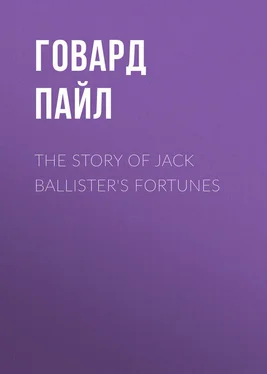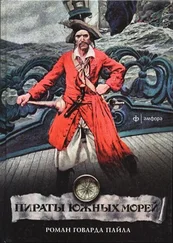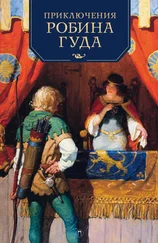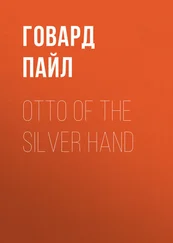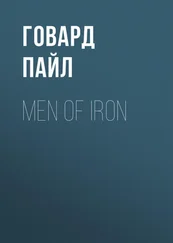Говард Пайл - The Story of Jack Ballister's Fortunes
Здесь есть возможность читать онлайн «Говард Пайл - The Story of Jack Ballister's Fortunes» — ознакомительный отрывок электронной книги совершенно бесплатно, а после прочтения отрывка купить полную версию. В некоторых случаях можно слушать аудио, скачать через торрент в формате fb2 и присутствует краткое содержание. Издательство: Иностранный паблик, Жанр: foreign_antique, foreign_prose, на английском языке. Описание произведения, (предисловие) а так же отзывы посетителей доступны на портале библиотеки ЛибКат.
- Название:The Story of Jack Ballister's Fortunes
- Автор:
- Издательство:Иностранный паблик
- Жанр:
- Год:неизвестен
- ISBN:нет данных
- Рейтинг книги:5 / 5. Голосов: 1
-
Избранное:Добавить в избранное
- Отзывы:
-
Ваша оценка:
- 100
- 1
- 2
- 3
- 4
- 5
The Story of Jack Ballister's Fortunes: краткое содержание, описание и аннотация
Предлагаем к чтению аннотацию, описание, краткое содержание или предисловие (зависит от того, что написал сам автор книги «The Story of Jack Ballister's Fortunes»). Если вы не нашли необходимую информацию о книге — напишите в комментариях, мы постараемся отыскать её.
The Story of Jack Ballister's Fortunes — читать онлайн ознакомительный отрывок
Ниже представлен текст книги, разбитый по страницам. Система сохранения места последней прочитанной страницы, позволяет с удобством читать онлайн бесплатно книгу «The Story of Jack Ballister's Fortunes», без необходимости каждый раз заново искать на чём Вы остановились. Поставьте закладку, и сможете в любой момент перейти на страницу, на которой закончили чтение.
Интервал:
Закладка:
Jack could not imagine his father as the hero of any such scene, still less could he image him as riding post-haste to Southampton when his mother had been sent away home from Grampton Hall.
He often heard people say that his father was a great scholar. The vicar was always silent and preoccupied, sometimes deep in his books, sometimes scribbling away with a busy pen, a litter of papers scattered all over the floor about him, and his wig pushed back awry from his smooth, round forehead; sometimes walking up and down the garden paths with his hands clasped behind his back, his head bent forward, and his eyes fixed on the ground. He used especially to walk thus while he was formulating in his mind the outlines of one of the pamphlets he used to write. Jack could not imagine that any one so absorbed in his books and his studies could ever have been the hero of such romance. And then he always seemed so very, very old to Jack. It was hard to imagine that such a dry and sapless life could ever have had the ichor of romance flowing through it.
Before Janet had come to Stalbridge she had been one of the dependents of the other Ballisters. “They be grand, grand folks,” she would sometimes say, “and hold their heads as high as ever the Duke of Newcastle himself.” She sometimes told Jack that if his father had not set his family all against him, he might have been a bishop as like as not. “I’d never come to Stalbridge only for your mother, poor soul,” said she. “But she was fond of me, and I was fond of her, and so I came.”
It seemed to Jack that he could hardly remember the time when his father did not teach him Latin and Greek. One of his first recollections as a little, little boy was of his father teaching him the Greek alphabet. He learned little or nothing else than the two languages, and it is not likely that his father thought anything else was worth learning. Jack once overheard the vicar say to old Sir Thomas Harding, “Sir, I will make the boy the best scholar in England.” The words remained fixed in Jack’s memory as such fragmentary speeches do sometimes fix themselves, for no especial reason, in the mind of boyhood. The promise of great scholarship was, however, never to be fulfilled, for Jack was only fourteen years old when the vicar died, and in the neglected two years at Southampton he never went to school a day, or studied six words of a lesson, or read a page of Greek or Latin, except one or two times when Mr. Stetson made him read a passage or two of Greek as a matter of curiosity.
Jack’s father never said anything to him about his mother or his relations. His uncle Tipton had come up from Southampton just before his father’s death, but that was the only time that Jack had ever really seen one of his own kindred.
During the fall of the year in which Jack’s father had died, a messenger on horseback, with great jackboots and a suit of green livery turned up with scarlet, rode up to the vicarage and delivered a packet to Janet, who presently brought it in to the vicar, where he sat in the sagging wainscoted study, writing in the midst of a litter of papers scattered on the floor. The vicar set his pen in his mouth and took the letter, and Jack watched him as he broke the great red seal and began reading the packet, now and then frowning, either in the effort of reading the written words or else at the purport of the words themselves. When he had finished the letter he laid it to one side and resumed his writing where it had been interrupted. The messenger who had brought the letter did not immediately go away. Jack could hear now and then the jingle of his bridle or spurs, and now and then the sound of his whistling, as he lounged in the warm sunlight outside. Then there was the noise of voices talking together – the voices of Janet and the messenger – and presently the housekeeper came into the study to say that the man wanted to know when he could have his answer. The vicar looked up with the bewildered air he always wore when he was interrupted. “Eh!” he said, “eh! what d’ye say? Answer? Who wants an answer?” Then remembering, “oh, aye, there’s no answer to send. You may tell him, there’s no answer.” And then presently the messenger rode clattering away whence he had come.
The letter lay where the vicar had left it until the next afternoon, and Jack, impelled by curiosity, managed to read a part of it. It was from his grand-aunt Lady Dinah Welbeck. She said that she was very ill, and she asked the vicar to come and see her before her end, and that all should be forgiven. The vicar did not go, either because he did not think of the message again, or else because he did not choose to resume his correspondence with his family. The letter lay about until the vicar tore a great strip off from it with which to light a candle in the next room, and the next day the written sheet was gone.
Some time after Lady Dinah Welbeck’s death another communication, long and bulky, was brought to the vicarage. The vicar read it but paid no attention to it. Then another letter came and another. The last letter the vicar did not even open for several days. He was very busy at work upon a pamphlet, and the letter lay neglected upon the writing table until one morning Janet brought it and thrust it into his hand. “Eh!” said he, as though suddenly awakening to things about him, “what is this! what is this?” He took the letter and looked at it. “Why, this letter should have been given me three days ago,” he said.
“So ’twas, master,” said Janet, “but you did not read it.”
“Did I not so?” said Jack’s father, and then he broke the seal and read it. But still he paid no attention to it.
No doubt the vicar’s family would long since have received him back among them if he had cared to have them do so. He and they had drifted far apart in the nineteen years that had passed. During that time all ill feeling – at least on the part of the family – had faded away and died. There was no intimacy, hardly any acquaintance, between the vicar and his brother, Sir Henry, neither was there any longer rancor between them.
Some of the letters written at this time had been written by Sir Henry, and after a number had been sent without eliciting any reply, the baronet sent the Grampton lawyer down to Stalbridge. The attorney and the vicar were closeted together for a long time, and when they at last came out of the study the vicar was very angry. It was the only time that Jack had ever seen him so. “They may keep it all!” he was saying in a great loud voice. “They may keep it all! I want none of it, I say. All that I want of them is to let me alone as I let them alone. I want, I say, none of their money or nothing that belongs to them. They may keep all for themselves.”
Jack was leaning out of an upper window in the sunlight, looking down upon their heads, as they stood just below. Their voices came up to him through the warm air very distinctly.
“But, sir,” said the lawyer, “do you not then consider the welfare of your own son?”
“Sir,” said the vicar in the same loud voice, “that, I believe, is not your affair. I will look after my son’s welfare mine own self. I tell you, sirrah, that those who sent you may e’en keep all of the money for themselves. I want nothing of them, and neither shall my son take aught from them.”
“But, sir,” said the lawyer, “you forget that the money hath been left to you individually. In taking it you do not take anything from them. It was not left to your brother, it is not a gift from him or, indeed, from any one, and it does not belong to any one but you. Your family cannot even receive it from you without process of law, and you cannot help taking it.”
“Aye, but I can help taking it,” cried out the vicar.
“Sir, sir!” said the lawyer, “pray be calm, sir. Pray look at this matter reasonably. Here is this money – ”
Читать дальшеИнтервал:
Закладка:
Похожие книги на «The Story of Jack Ballister's Fortunes»
Представляем Вашему вниманию похожие книги на «The Story of Jack Ballister's Fortunes» списком для выбора. Мы отобрали схожую по названию и смыслу литературу в надежде предоставить читателям больше вариантов отыскать новые, интересные, ещё непрочитанные произведения.
Обсуждение, отзывы о книге «The Story of Jack Ballister's Fortunes» и просто собственные мнения читателей. Оставьте ваши комментарии, напишите, что Вы думаете о произведении, его смысле или главных героях. Укажите что конкретно понравилось, а что нет, и почему Вы так считаете.
